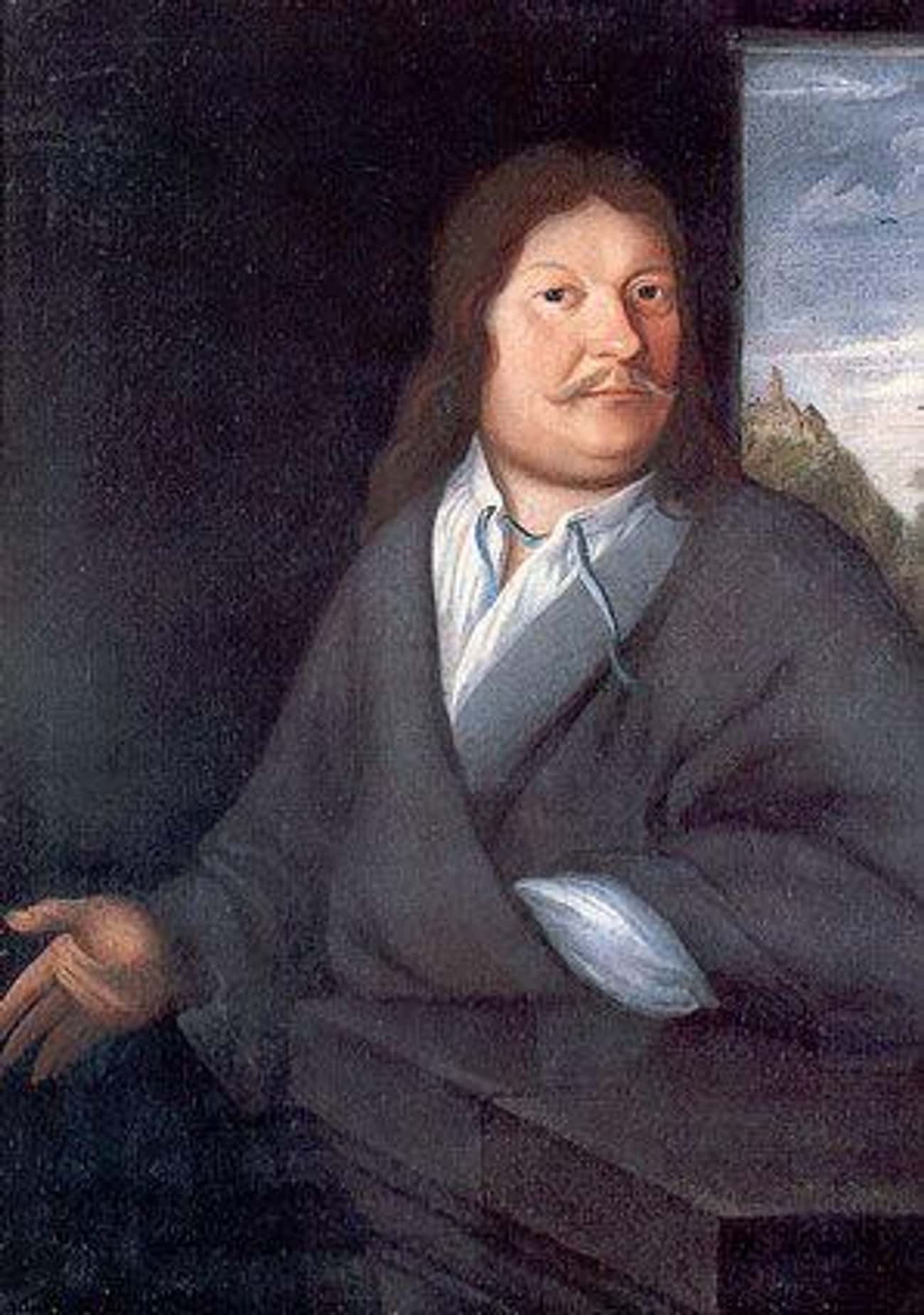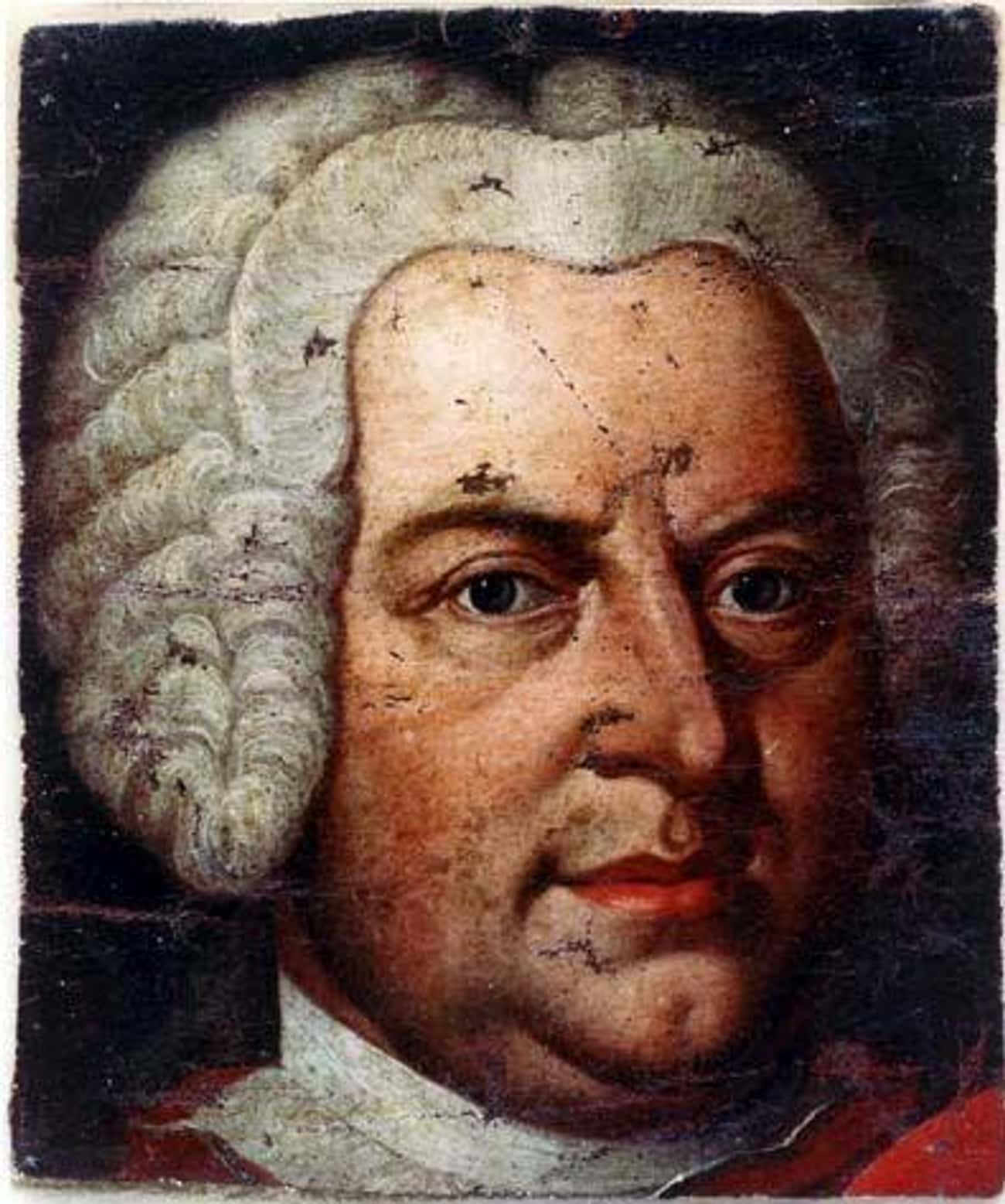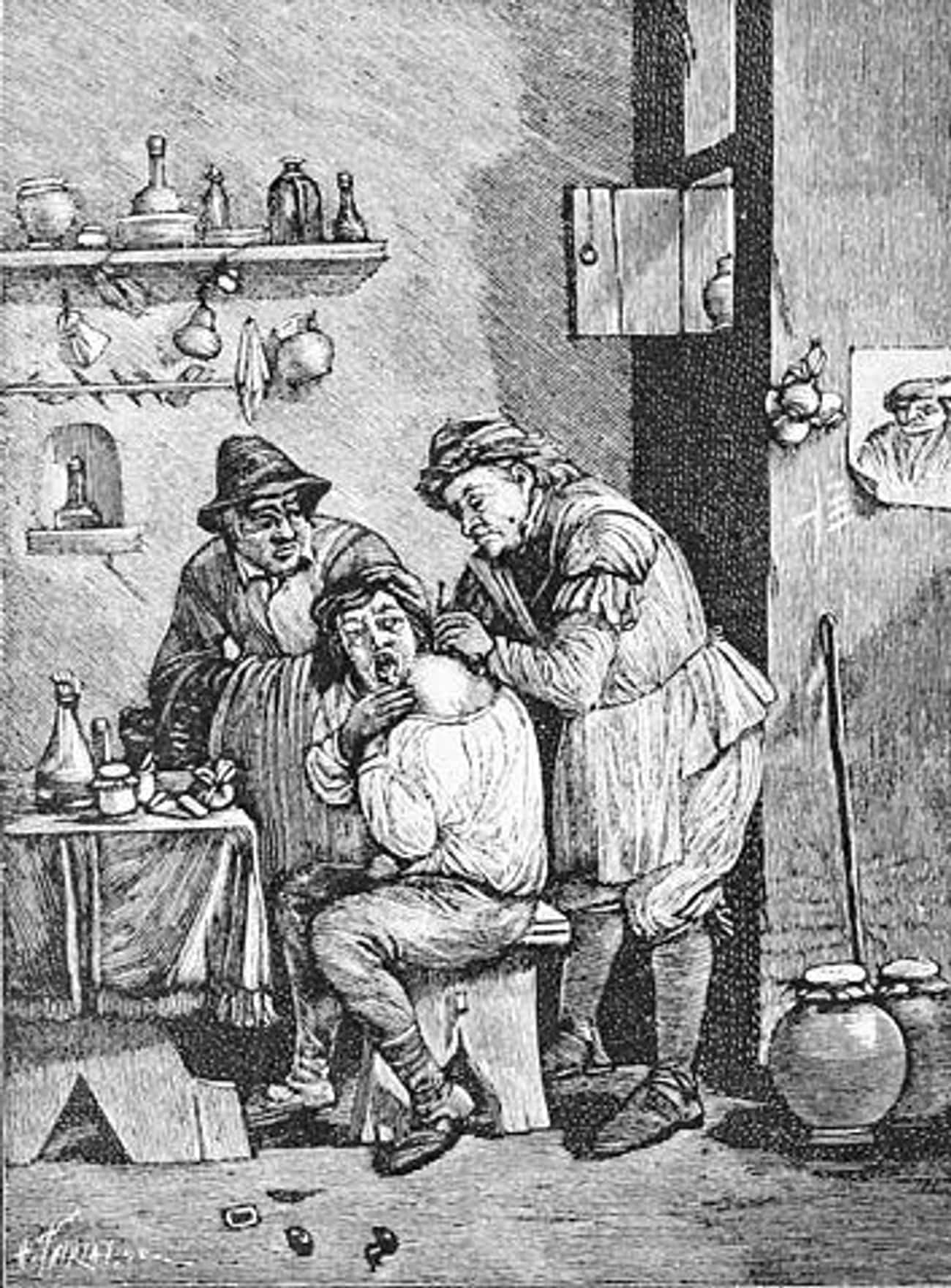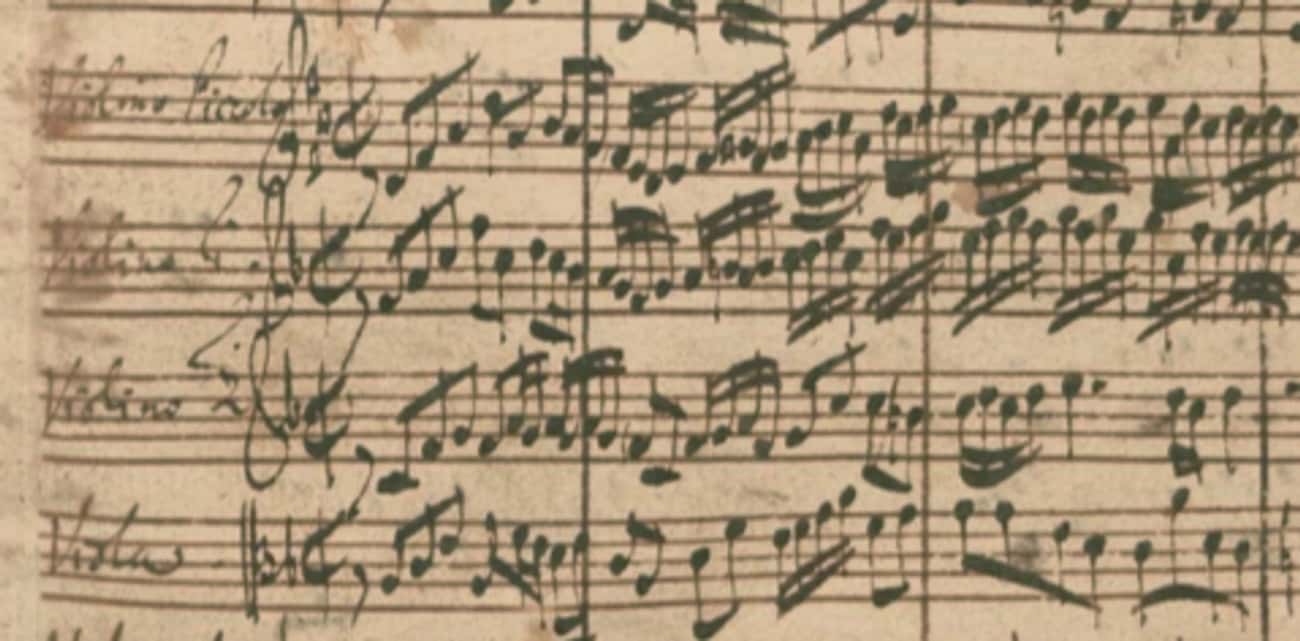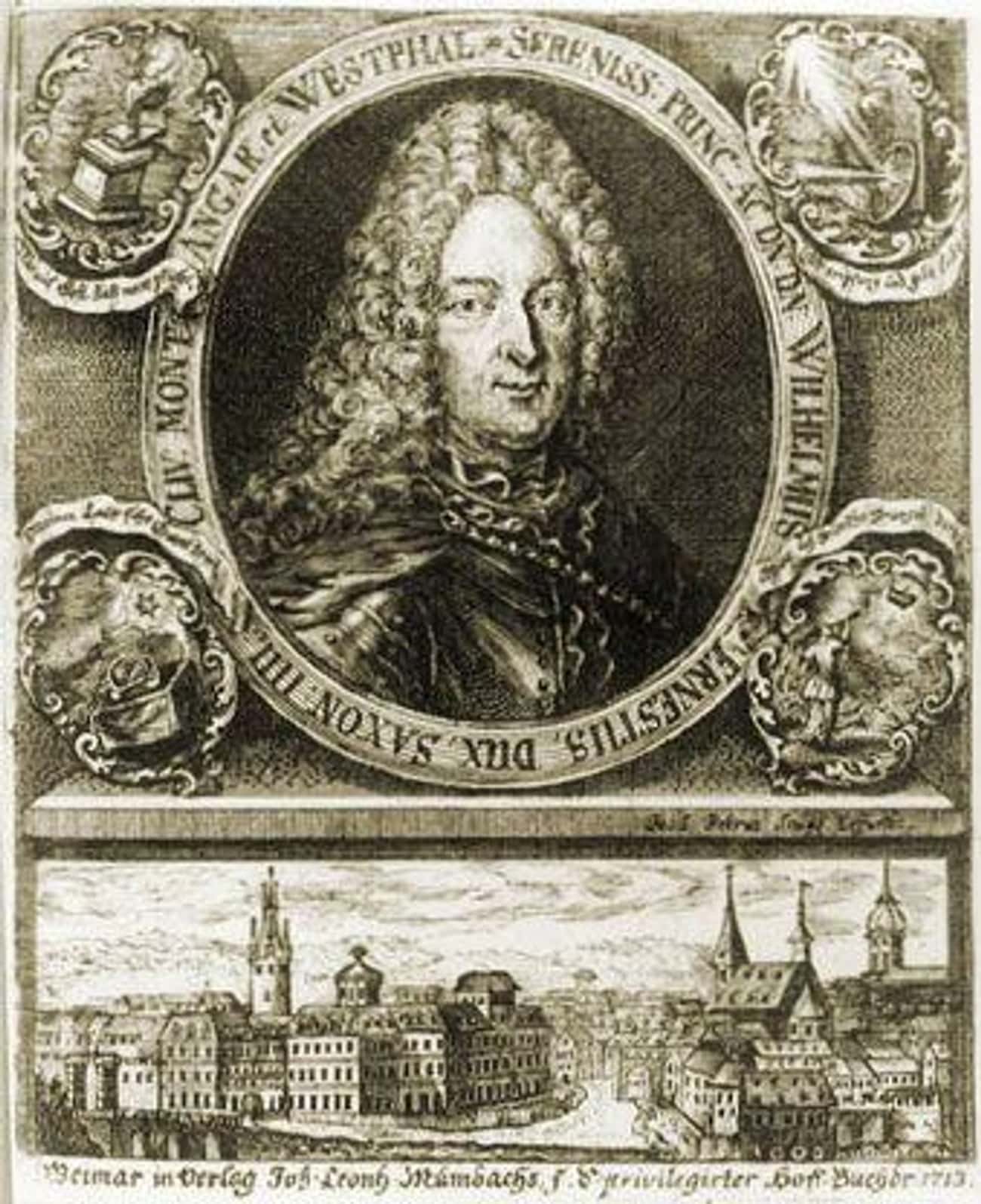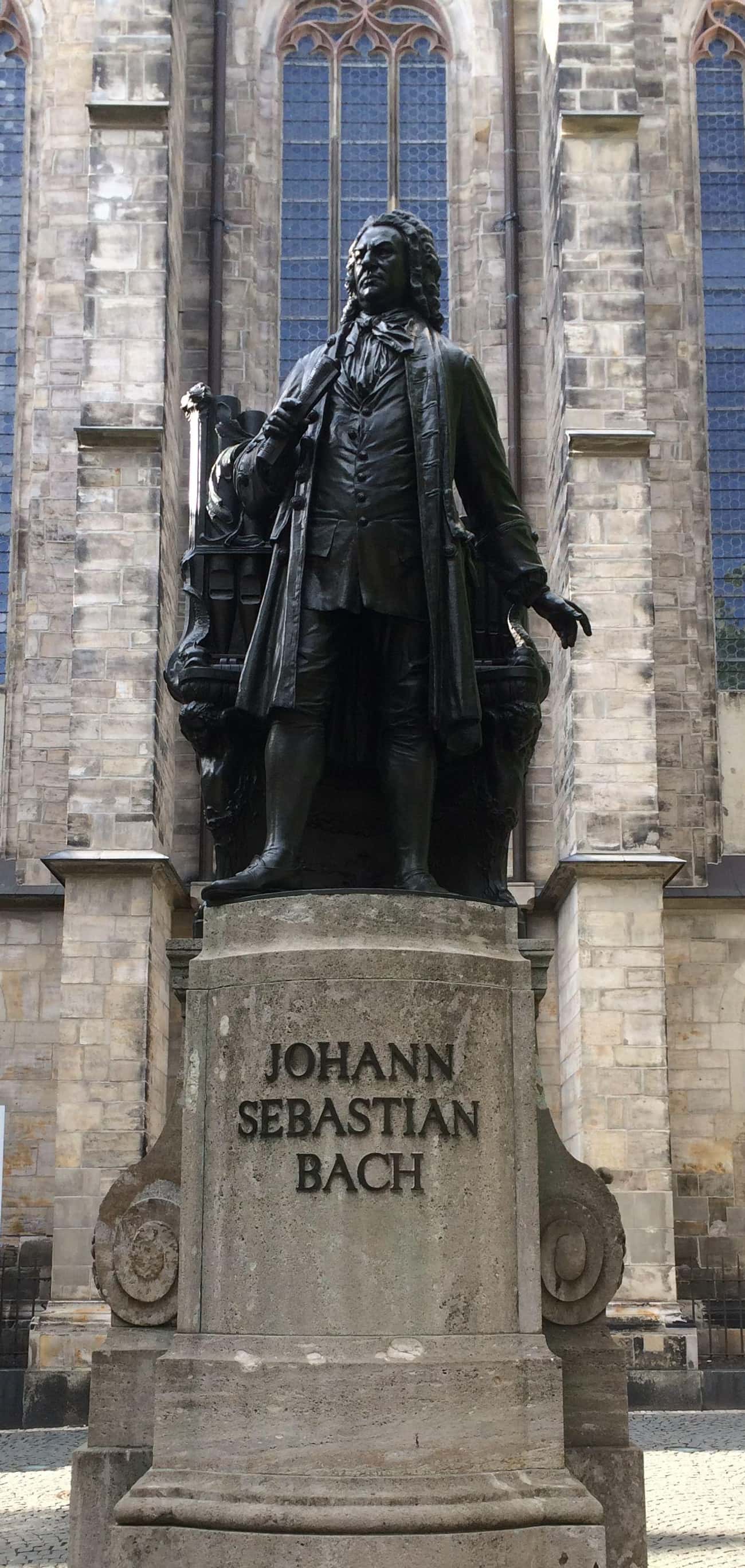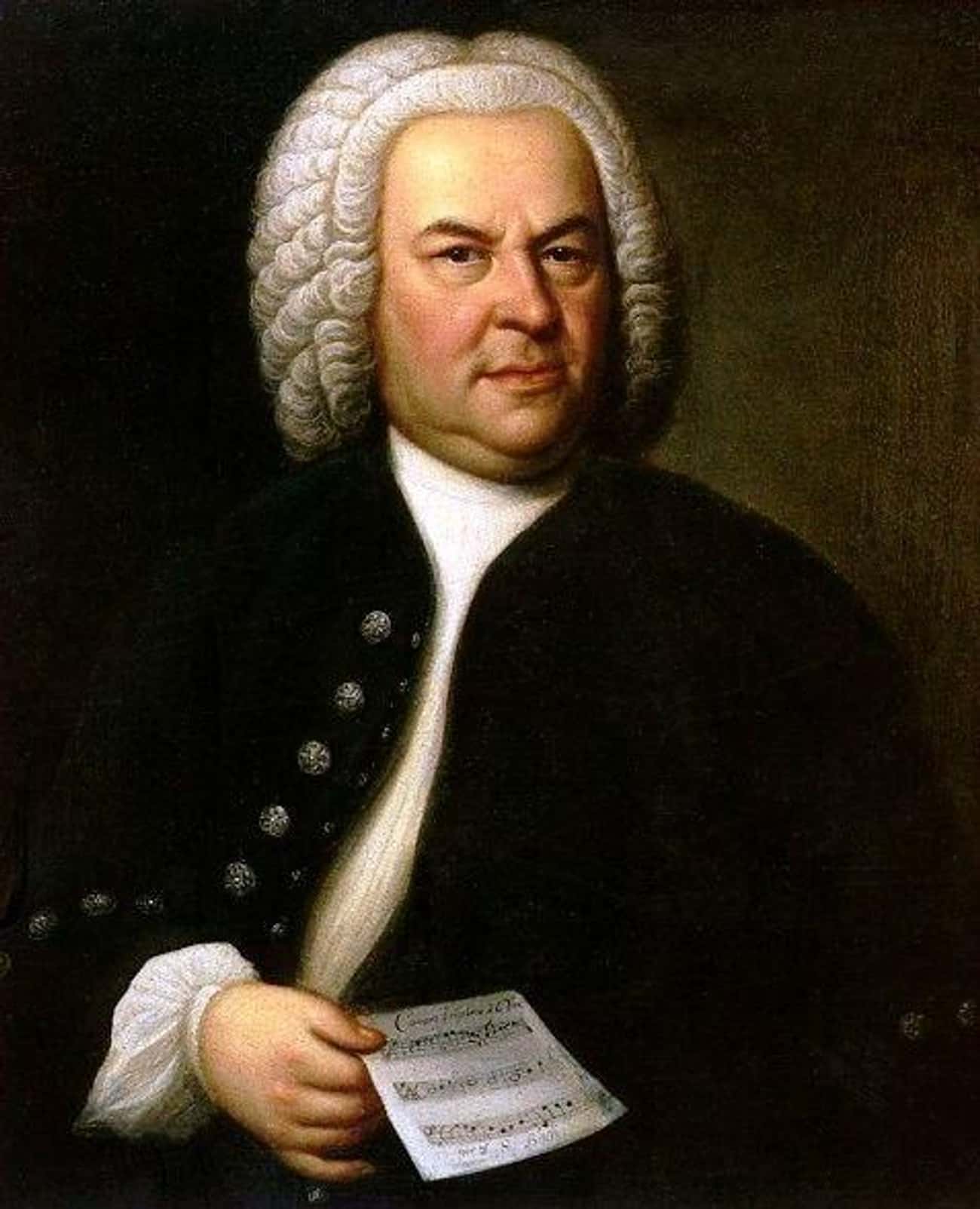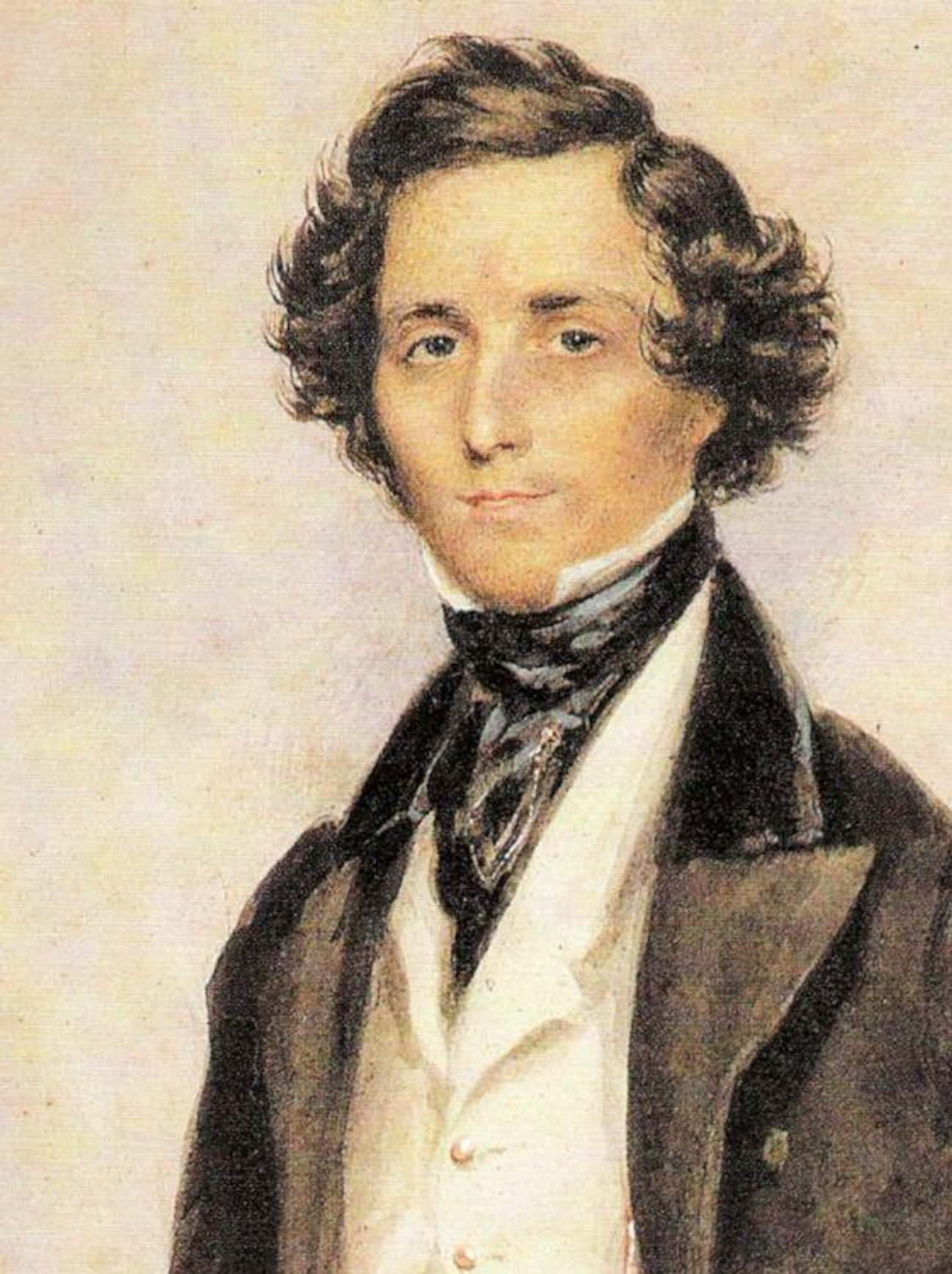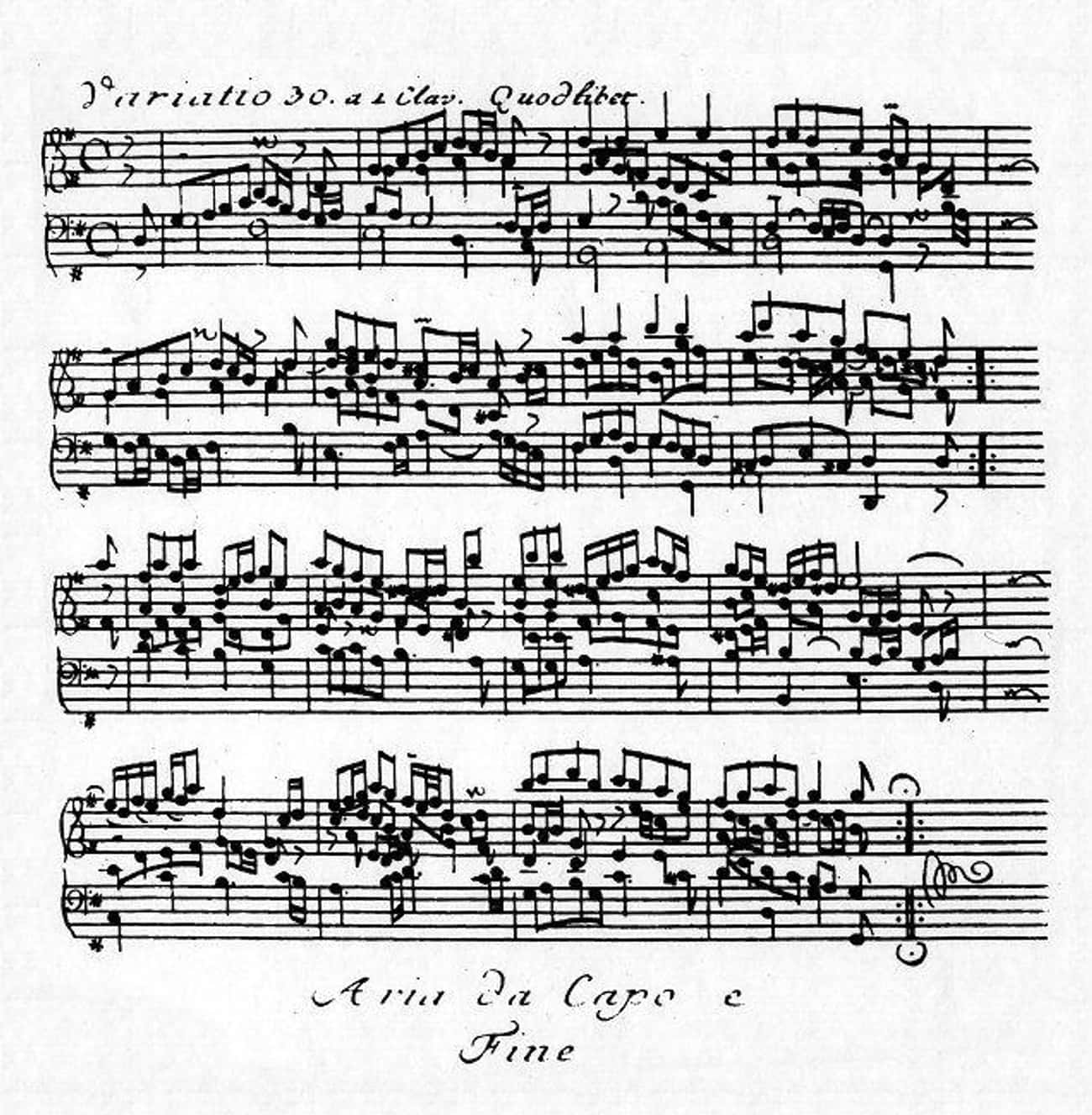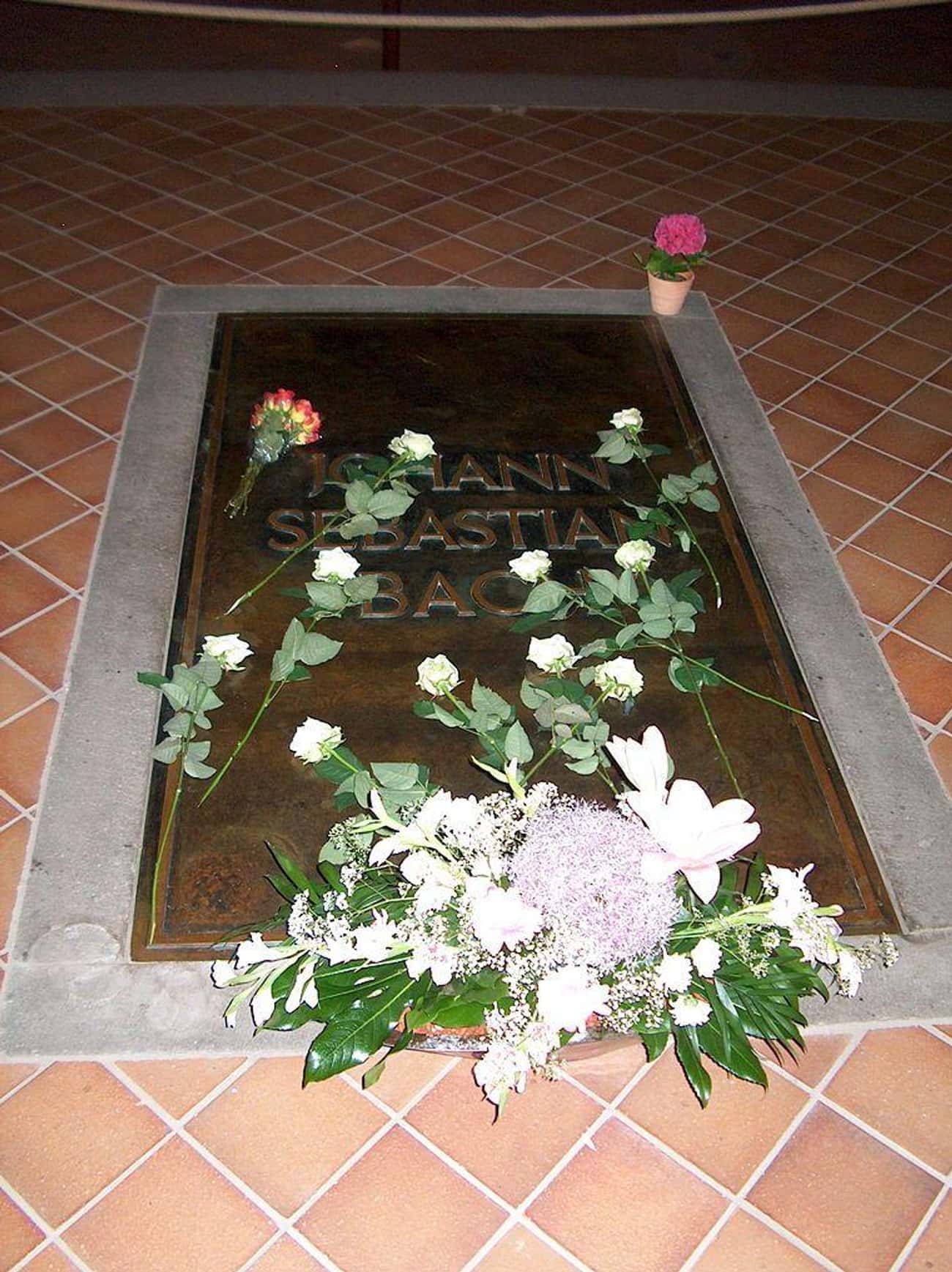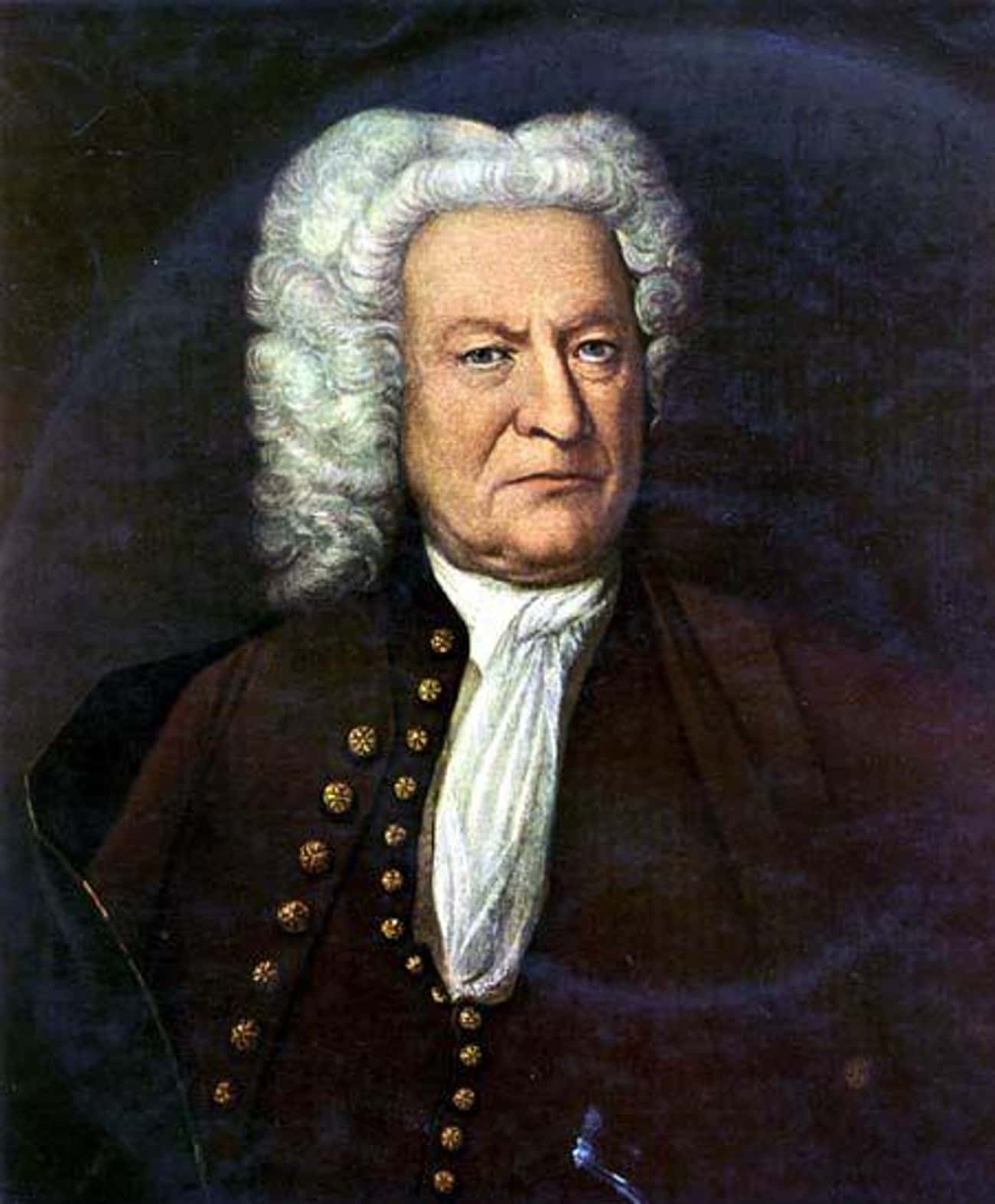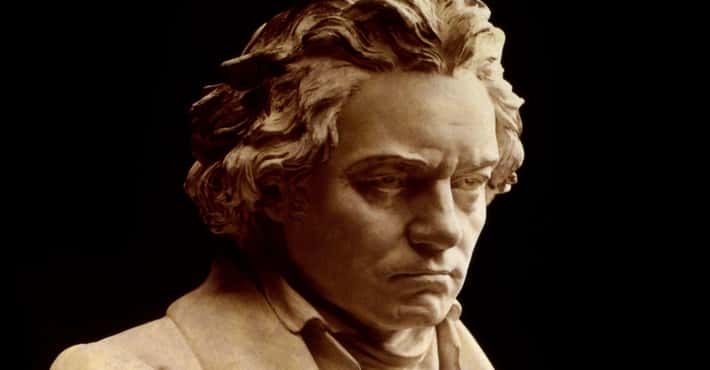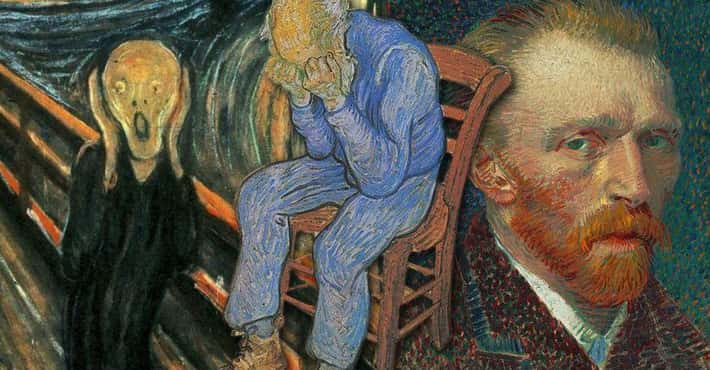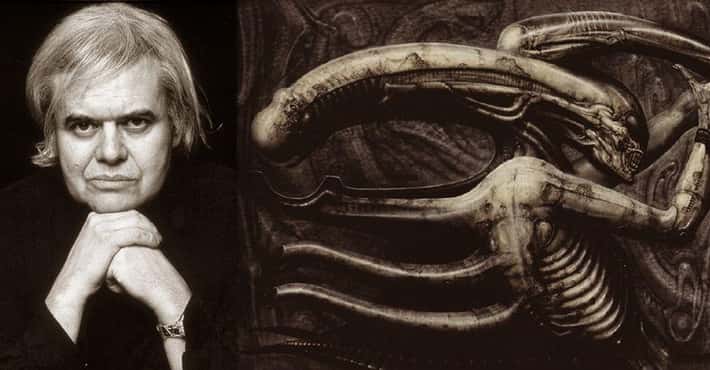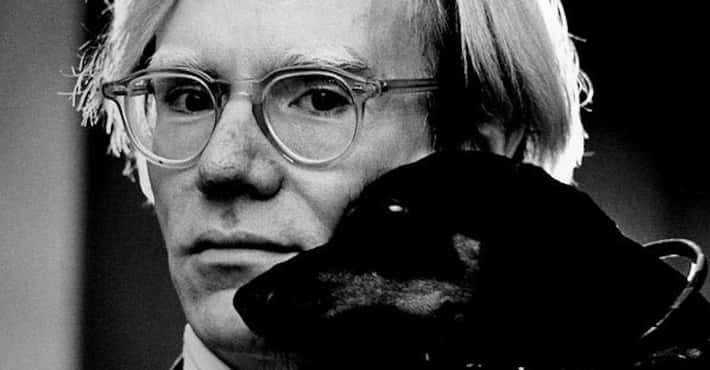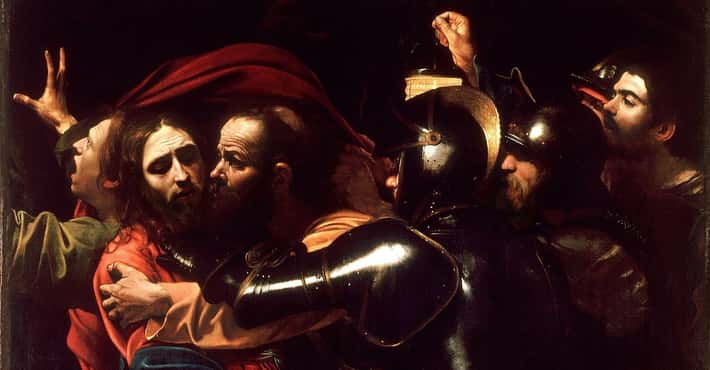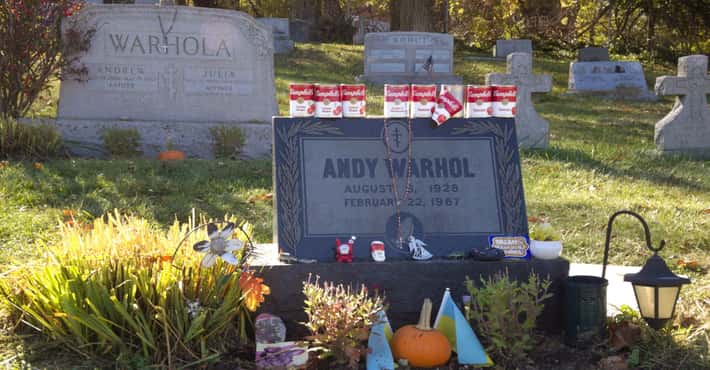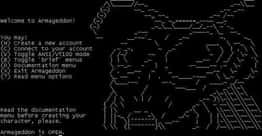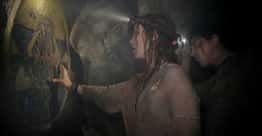Surprising Facts About Johann Sebastian Bach
- Photo: Attributed to Johann David Herlicius / via Wikimedia Commons / Public Domain
He Was An Orphan By The Age Of Ten
Johann Sebastian Bach was born in Eisenach, Germany on March 31, 1685. His father, also named Johann, was a seventh-generation musician who taught his son musical fundamentals. Bach's mother died in 1694, and Johann's father died eight months later, leaving the child an orphan before the age of ten. Bach, the youngest of eight children, was taken in by his eldest brother.
- Photo: Public Domain / via Wikimedia Commons
He Fathered 20 Children
Bach had two wives. His first, Maria Barbara, was his second cousin, and she died in 1720. The couple had seven children together, though only four lived to adulthood. Maria features in an amusing anecdote in Bach's life: in 1706, he was reprimanded by authorities for bringing a "strange maiden" into a church organ loft to "make music." It was likely Maria.
Bach's second wife, Anna Magdalena, gave birth to thirteen children; six survived. Anna transcribed many of Bach's pieces, and was a singer and musician herself. Bach dedicated a number of works to her, including "The Notebook for Anna Magdalena Bach."
- Photo: Public Domain / via Wikimedia Commons
He And Handel Were Blinded By The Same Quack
Late in life, Bach's eyesight was failing. He decided to consult with a supposed expert, an "oculist" named John Taylor. Taylor operated on Bach in the spring of 1750. Not only did the operation fail to restore Bach's eyesight, he went into a rapid decline and died of a stroke on July 28, 1750. His death was believed to be caused by a post-operative infection.
The same doctor performed cataract surgery on composer George Friedrich Handel around the same time. This operation caused Handel to go totally blind by 1752.
- Photo: Public Domain / via Wikimedia Commons
The Brandenburg Concertos Were A Failed Audition
One of Bach's most famous compositions is a series of six suites known collectively as the Brandenburg Concertos, but they were almost a side-note in his career. In 1720, Bach sensed that his position at court at Köthen was in jeopardy - the new wife of his employer, Prince Leopold, was apparently not a fan of his music. But he had recently met Christian Ludwig, Margrave of Brandenburg, and thought he might be persuaded to give him a job.
Bach collected together some previously composed material and sent it to Christian Ludwig, presumably to show him what he could do. Unfortunately, Ludwig never responded.
- Photo: Public Domain / via Wikimedia Commons
He Spent A Month In Prison For Attempting To Quit A Job
Musicians like Bach were usually employed by the nobility, and frequently weren't treated with much respect. Beginning in 1708, Bach worked for the Duke of Sachsen-Weimar, William Ernst, as an organist and then orchestra leader.
When the court's Kapellmeister (head music-maker) died in 1716, Bach requested and expected to be promoted into this position. Unfortunately, the Duke appointed the deceased Kapellmeister's son instead. In disgust, Bach requested that he be dismissed, a demand that infuriated William Ernst. He had Bach tossed into jail for a month before his resignation was accepted.
True to his creative nature, Bach didn't waste his time behind bars. He used that stretch to compose a cycle of organ chorale preludes.
- Photo: Eric Pancer / via Wikimedia Commons / CC BY 3.0
He Never Left Germany
After Bach's death, his music slipped into initial obscurity. One major factor in this decline in interest was Bach's residence in a relatively remote and unsophisticated part of Germany. Bach spent the last 27 years of his life in Leipzig, and he had previously lived and worked in other, smaller cities and towns in the Saxony region. Bach also never traveled to the cultural hotspots of Prague, Vienna, London, or Paris. In fact, he lived and died in a 150 square mile area and never left Germany.
- Photo: Elias Gottlob Haussmann / via Wikimedia Commons / Public Domain
He Was Underpaid
Bach was relatively poor throughout his life; with the death of his parents at a young age, it was only his musical talent that allowed for a scholarship at a German monastery in 1700. Later, Bach and his family lived on the modest salary that he earned in various obscure German courts, where musicians were paid even less than they were in more populated areas. Unlike Mozart, Beethoven or Handel, he didn't earn money performing before large audiences.
By 1730, Bach held several positions within schools or churches, but still frequently complained about his small income.
- Photo: James Warren Childe / via Wikimedia Commons / Public Domain
His Music Was Revived By Felix Mendelssohn
For years after his death, none of Bach's music was published and it was rarely performed. He was considered a dated composer and fell into obscurity.
In 1823, composer Felix Mendelssohn's grandmother gave him an original manuscript of Bach's St. Matthew Passion. He decided to perform it, and presented it in concert on March 11, 1829 in Berlin. It was the first public presentation of the work in close to one hundred years. The response set off a revival that catapulted Bach back into international prominence as one of classical music's most respected composers.
- Photo: Public Domain / via Wikimedia Commons
His Lost Manuscripts Made Up A Major Restitution
In 1943, Berlin's Sing-Akademie musical manuscript collection - consisting of thousands of original scores written by Bach and other members of his family - was moved from Berlin to Silesia to protect it from aerial bombardment and destruction. Eventually, it fell into the hands of the Russian Army and ultimately into the possession of the KGB. The collection was stashed in a state archive in Kyiv, but Soviet officials repeatedly denied its existence until 1999, when Ukrainian officials acknowledged possession.
In 2002, Ukraine returned the entire 5,100-manuscript collection. It was a significant act of restitution.
- Photo: Furfur / via Wikimedia Commons / CC-BY-SA-3.0
He Might Not Actually Be In His Grave
Bach was buried in Leipzig, where he spent the last three decades of his life. He stayed in an unmarked location until 1894, when a search began for the remains of the now widely celebrated composer. Relying on the fact that Bach was buried in an oak casket, experts unearthed what they thought was Bach's skeleton and placed it in a vault beneath the altar of nearby St. John's Church.
The saga of Bach's body doesn't end there. St. John's Church was badly damaged during World War II, and Bach's intact stone sarcophagus was transferred to Leipzig's Thomaskirche on the 200th anniversary of his death in 1950. Scholars have debated whether it is really Bach who is entombed within this memorial, though church officials have rejected attempts to test the DNA of the bones under the floor of the cathedral.
- Photo: Public Domain / via Wikimedia Commons
His Music Is Used To Ease Tension In Airports
Baroque music crops up in some unexpected places. At La Guardia, Newark and JFK International Airports, a classical soundtrack prominently featuring Bach is played in the vicinity of the check-in zone. His work is also regularly played in Penn Station's main mezzanine area, and many stations on the London Underground feature him too. Baroque music supposedly has a calming effect on harried travelers.
Bach's benefits might extend beyond stress-relief. Shopping centers and convenience store managers occasionally use Baroque music to discourage loitering.


